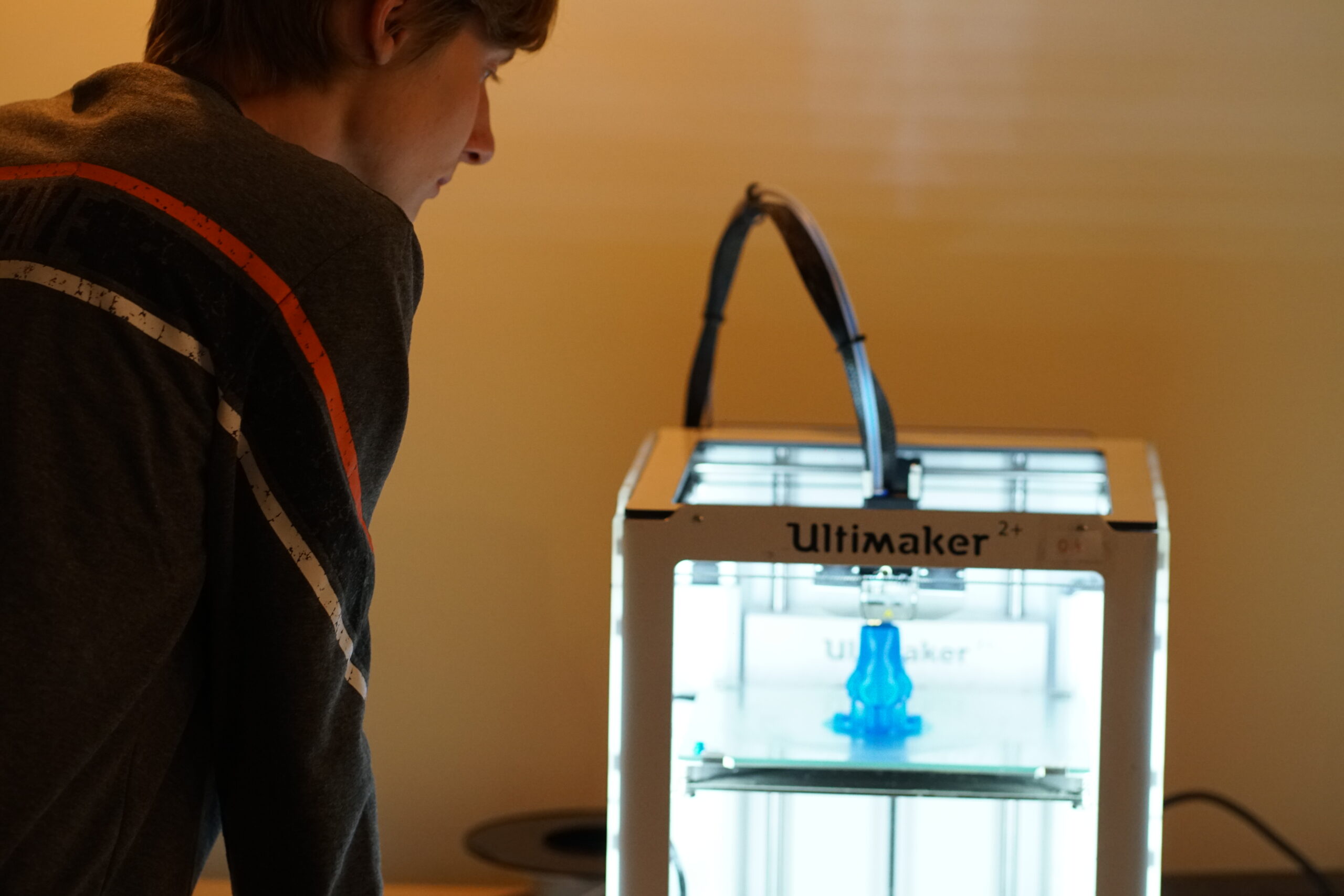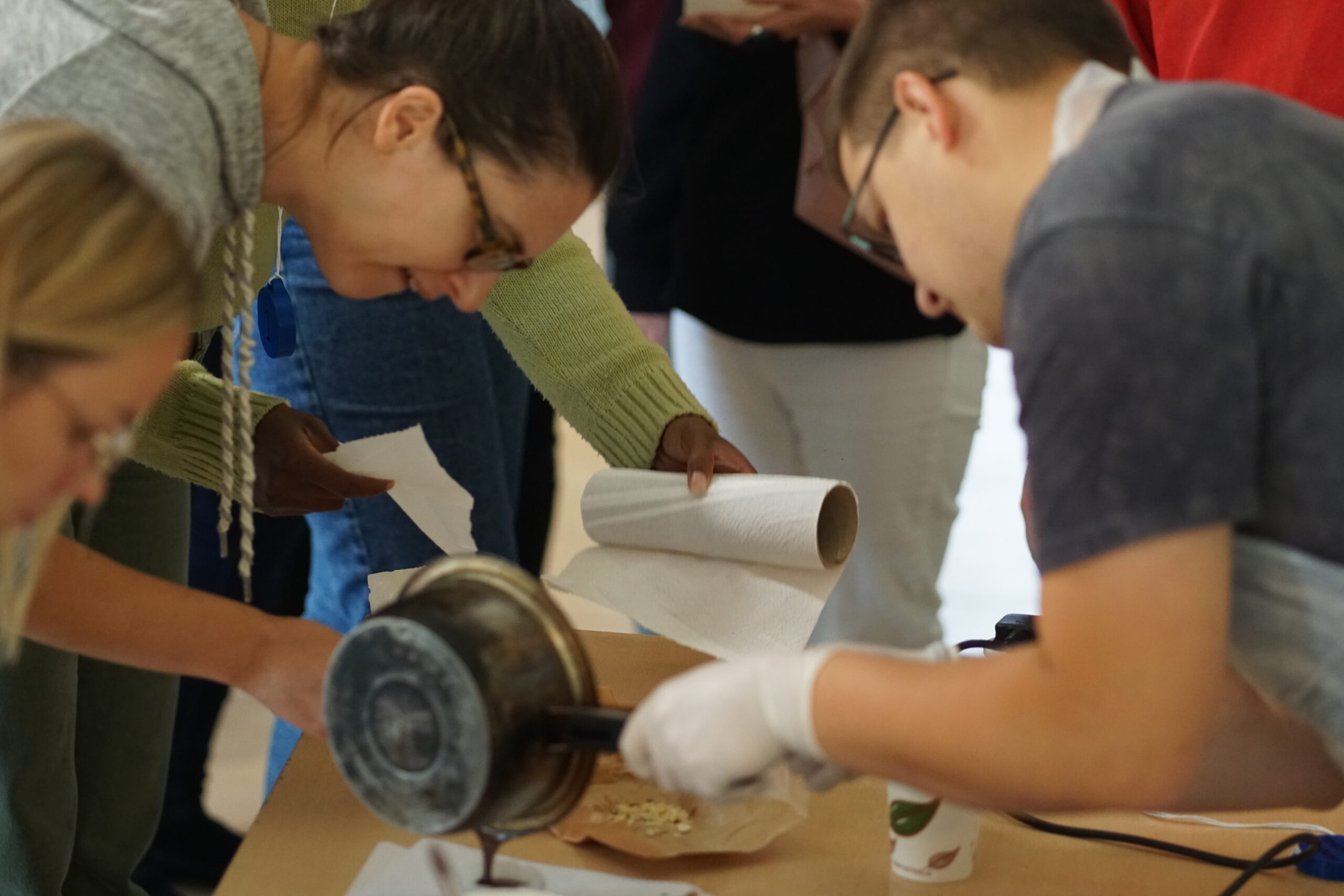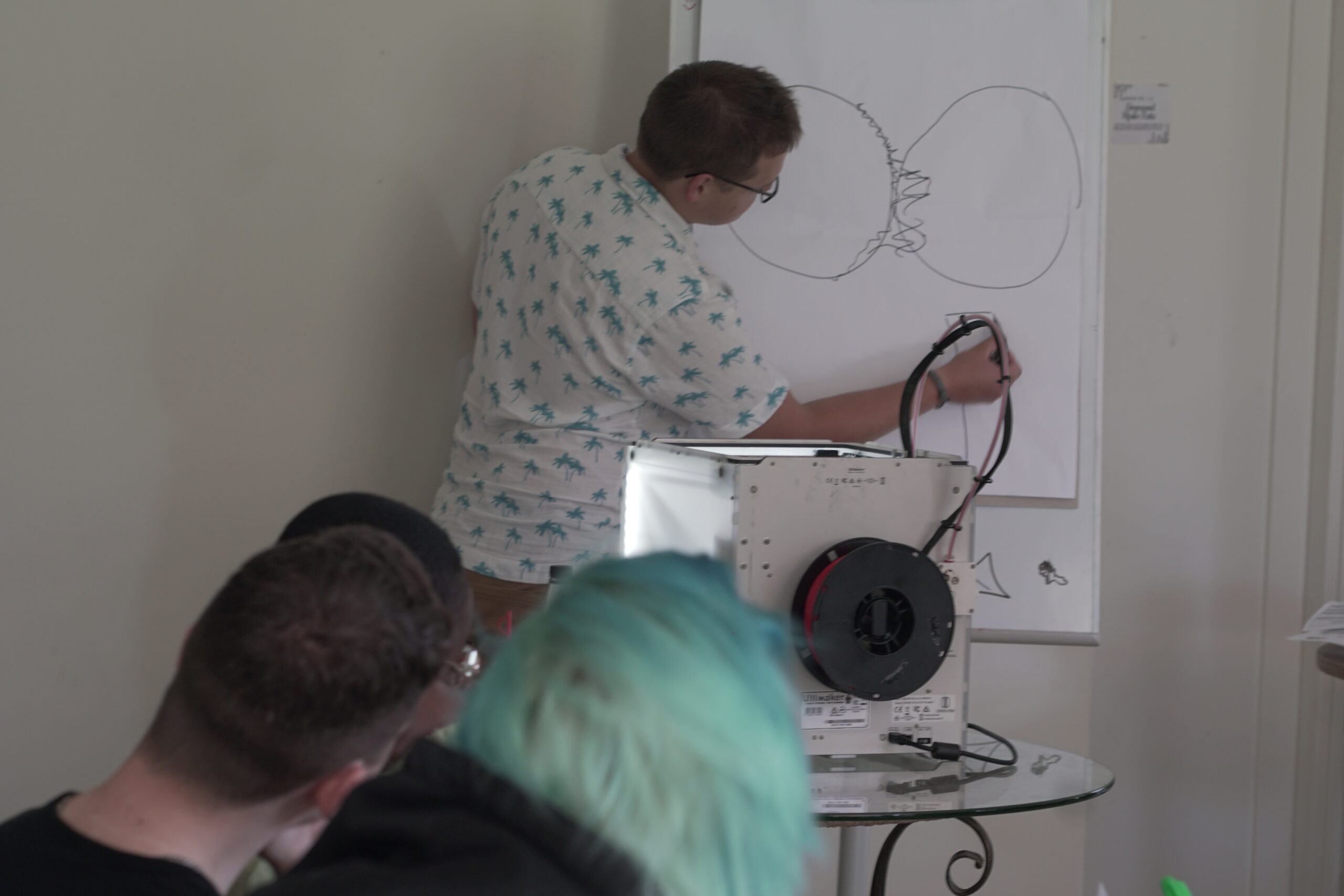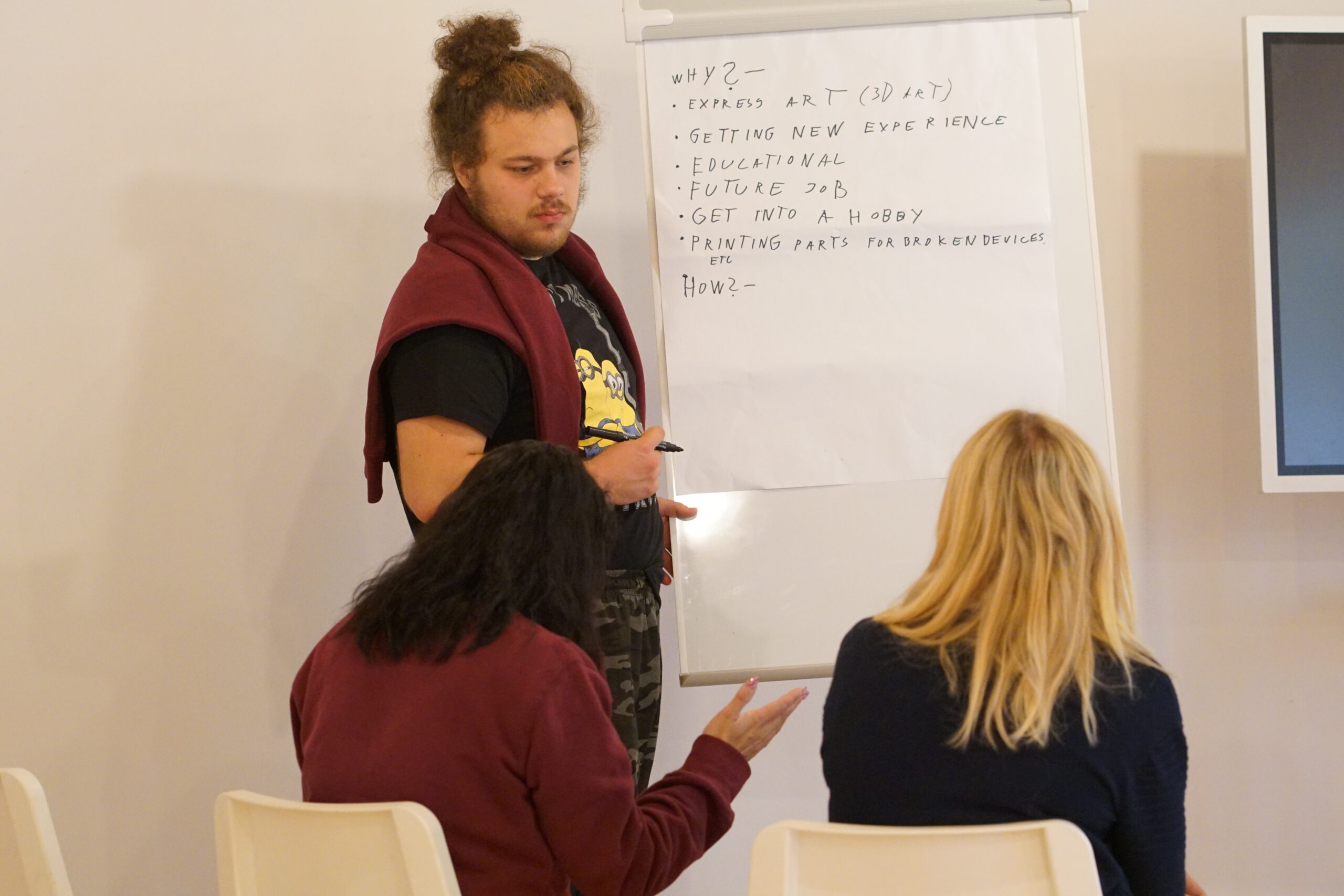Young creators discover 3D
Why we initiated this project
Non-formal learning plays an important role in supporting the development of essential creative, interpersonal, communicative and cognitive skills. Critical thinking, creativity, collaboration and communication rank among the most important 21st century skills.
Coupled with relevant digital and technological competencies, they open more opportunities in the employment scene. However, an existing offer of technological education is of limited availability for young people, especially those with fewer opportunities due to economic, social or geographical obstacles.




Project Goals and Objectives
The Consortium has set a goal to develop creative skills among at least 300 young people and to strengthen at least 30 youth workers and educators’ competencies in delivering innovative non-formal activities by offering a 3D workshop methodology to respond to the limited availability of up-to-date, non-formal technological education.
We will focus on the target age group 14-19, as they comprise the majority of youngsters active at open youth centers in partner and associated organizations.
The objectives of the project are to:
- Develop a 3D modelling and printing workshop methodology.
- Provide competence development for youth workers and educators, as key actors in the implementation and sustainability of the produced intellectual output in partner and associated organizations.
- Engage young people, including with fewer opportunities due to social, economic and/or geographical obstacles, in exciting technological activities based on non-formal learning principles in their community/city/town.
- Disseminate the project’s intellectual outputs across youth, governmental, non-governmental, various educational sectors.
Non-tangible results:
- Increase of skills and competences of partners’ staff and collaborators.
- Increase of skills and competences of young people.
- Expansion of the non-formal educational offer for partner and associated organisations.
Activities of the project
Intellectual output
Development of 3D modelling and printing methodology for young people, including: learning content, methodological guidelines, non-formal methods, recommendations for youth workers and a research report, all available online at play.gaminu.eu. The materials will be available in English, Lithuanian, Latvian and Estonian.
Training
A 5-day training for youth workers from partner and associated organisations was held in August 2021 in Lithuania. 30 youth workers and educators joined this course and gained knowledge of 3D modelling with TinkerCAD, 3D printing, silicone molding, use of 3D in Youth Work, non-formal activities and evaluation methods.
Local workshops
Testing and validating the methodology with young people at partner organisations and associated partners. At least 30 youth workers and educators and at least 300 young people (100 of them with fewer opportunities) will be involved in piloting of the 3D methodology during local workshops.
Multiplier events
Presentation of the project’s results at local, regional, national and European levels. At least 60 young persons, youth workers, educators, policy makers, industry representatives will be involved in multiplier events in 3 partner countries.
Research
Implementation of a product quality and skill development survey to collect feedback from the testing activities for the upgrade of the guidelines. The survey will measure the development of competences of youth workers and youngsters before and after local workshops.
Dissemination
Dissemination of the project’s activities and achievements at local, regional, national, international and European levels will add to the promotion of 3D printing technology among young people as a contemporary digital skill.
